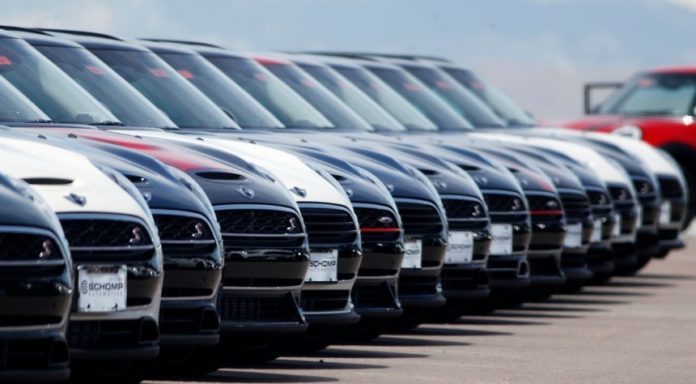In 2022, US auto companies were plagued by supply-chain problems and poorly stocked dealers. This resulted in an 8% decrease in domestic sales and the lowest level of purchases in over ten years.
People, the Biden economy is doing well.
2022 U.S. Auto Sales YoY Change
Nissan — Down 25%
Toyota — Down 9.6%
Subaru — Down 4.7%
Tesla — Up 40%— Whole Mars Catalog (@WholeMarsBlog) January 5, 2023
However, the good news is that General Motors was among the few companies to report an increase. It retook the US sales crown from Toyota in 2021.
The Wall Street Journal provides a breakdown of the numbers:
According to Wards Intelligence, this was the lowest number since 2011 and an 8% decrease over the previous year. Five years ago, sales reached 17 million units. Then came the Covid-19 pandemic in 2020. This caused supply-chain problems that have slowed down deliveries.
Many companies were plagued by computer chip shortages, which hampered production at Toyota and other companies. As sanctions and cut trade routes have made an impact, the war in Ukraine has contributed to the problem.
Jack Hollis (North American sales chief at Toyota) stated that projections for the entire industry were over 16 million when we began the year. As factories were forced to close down or slow down production, companies quickly abandoned their projections.
Toyota has posted a 9.6% fall in its 2022 US new vehicle sales as a shortage of semiconductor chips and rising costs hampered the Japanese automaker’s production earlier in the year.#Toyota #Sales #US #USAhttps://t.co/05ZYvmDOj1
— Hive PR MENA (@hiveprme) January 5, 2023
Inflation and high-interest rates are adding to Detroit’s problems. I don’t know if you’re worried, but I am holding onto my Ford Explorer six-year-old until they take it from me. The rising cost of goods has impacted my discretionary spending and the Fed’s rate hikes have left the average auto loan rate at 5.16 % for new cars and 9.34 % for used cars.
Hell is not for you.
Some auto executives hope for a better 2023. They are worried about the recession.
Jeff Schuster, global forecasts president at LMC Automotive, stated that 2023 will be a year of high risk and uncertainty because many markets could be facing a recession.
Fortunately, if you have an extra $66,000 hanging around (the average price of an electric vehicle), you can ignore the fact that its battery is probably produced by slave labor and get a fancy new EV. Joe’s got your back:
If you’re in the market for a car, you can now get a tax credit to buy a new or used electric vehicle. And if you get an EV, you can mute my social media posts about gas prices.
Here are the EV models currently eligible for new vehicle tax credits: https://t.co/rF5wXSF5DF
— President Biden (@POTUS) January 1, 2023
The war in Ukraine and overbearing COVID policies both contributed to supply chain problems. Biden’s inflation also strained the pockets of the richest Americans. Only those who absolutely need one–or simply have the means to purchase one–will be searching for one in 2012. The New York Times:
Analysts predict that the slowing economy and higher interest rates will cause some Americans to put off buying cars or stay away from showrooms in 2023, even though automakers produce more vehicles than last year due to being able to get more parts.
The truth is that until the government gets inflation under control, and the large-spending “Inflation Reduction Act”, will almost certainly not accomplish that goal, many people will hold off on major purchases for the near future.
Elections can have serious consequences.




